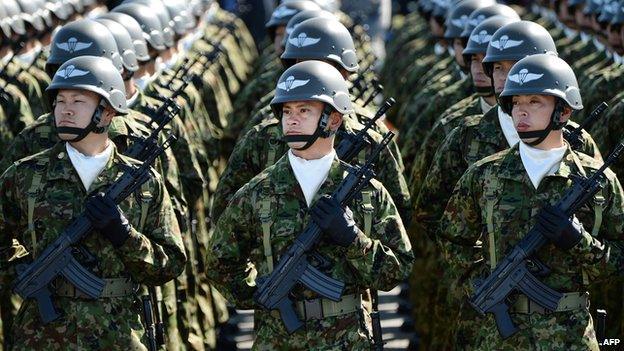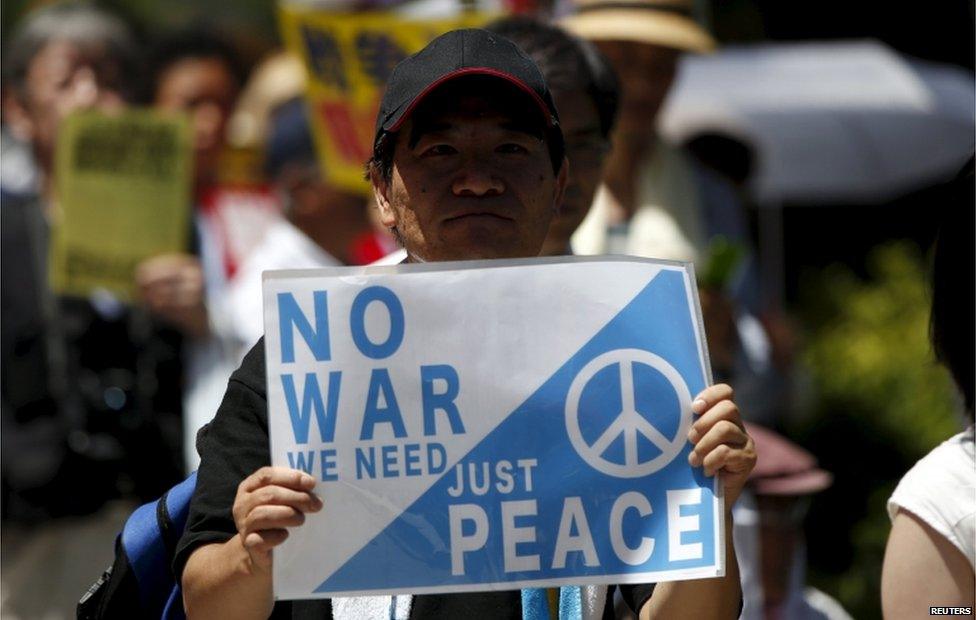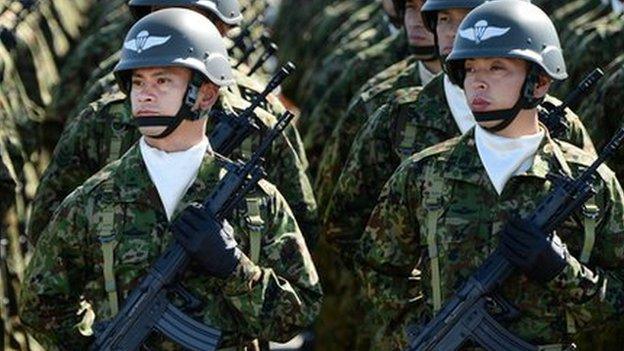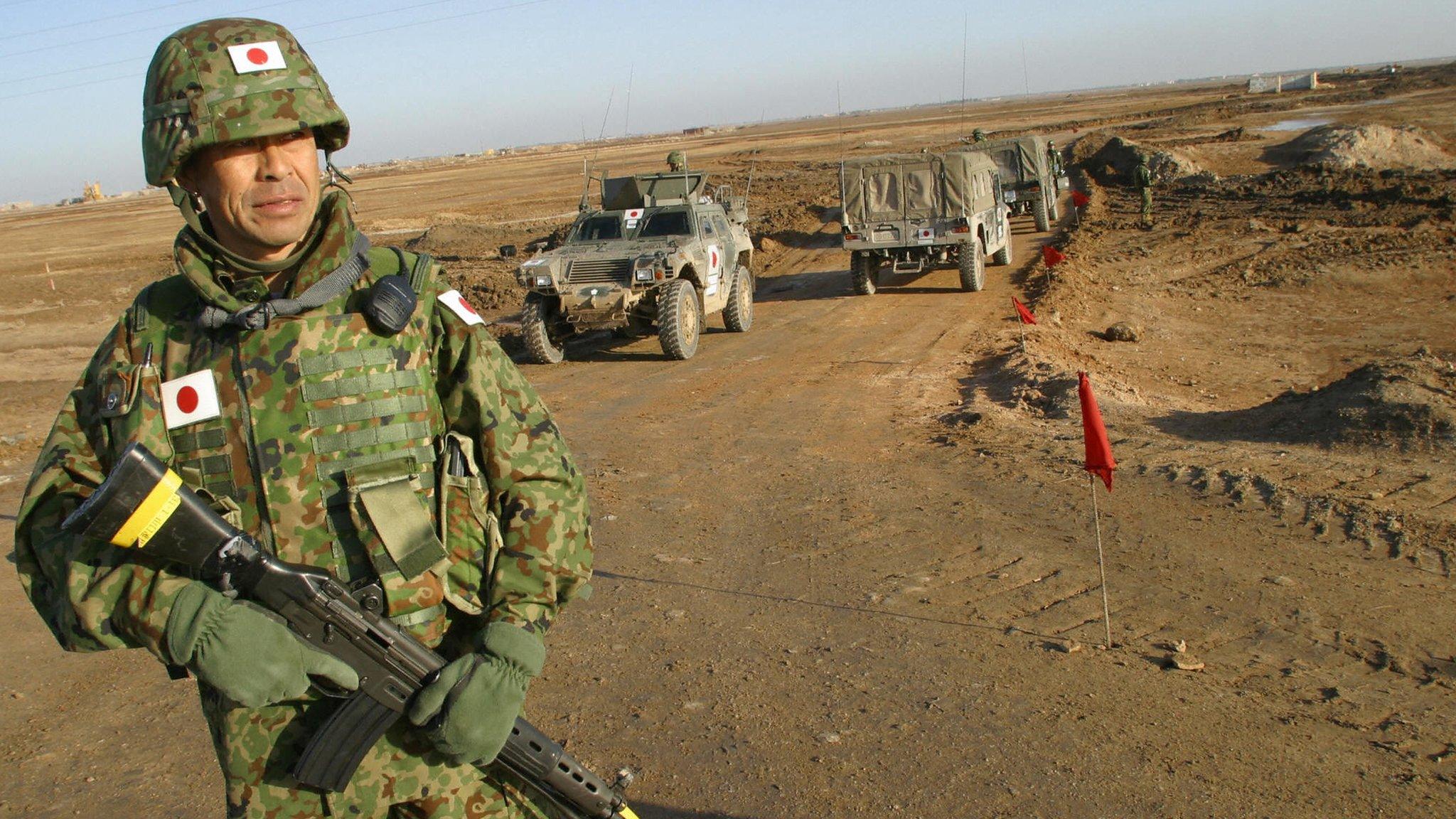Protests as Japan paves way for self-defence law change
- Published
There were angry protests outside parliament as the bill was passed, as Rupert Wingfield-Hayes reports
A parliamentary committee in Japan has approved two major bills for debate, paving the way for an expanded role for the military.
The move sparked protests from opposition lawmakers in parliament and activists outside the building.
If the bills are passed, Japan would be able to fight overseas in a doctrine called collective self-defence.
Prime Minister Shinzo Abe says it is necessary for the country's protection, but polls show many Japanese oppose it.
On Wednesday, a special committee set up in Japan's lower house to decide on the two security bills gave its approval.
The bills, will now be presented before Japan's full lower house on Thursday for another round of debate and approval. They still have to clear the upper house as well before they can be passed.
Many expect the bills to be passed as both the lower and upper houses of Japan's parliament, known as the Diet, are dominated by Mr Abe's Liberal Democratic Party (LDP).

What is collective self-defence?

Japan's post-World War Two constitution bars it from using force to resolve conflicts except in cases of self-defence.
The cabinet has pushed for a change that would revise the laws such that Japan's military would be able to mobilise overseas when these three conditions are met:
when Japan is attacked, or when a close ally is attacked, and the result threatens Japan's survival and poses a clear danger to people
when there is no other appropriate means available to repel the attack and ensure Japan's survival and protect its people
use of force is restricted to a necessary minimum


Activists gathered outside the Diet protesting the move
Tensions ran high inside the Diet building on Tuesday when the special committee, which is also dominated by the LDP, moved to halt a long-running debate on the bills.
Opposition lawmakers shouted their disapproval and mobbed committee chairman, Yasukazu Hamada, as he began the voting process. AP news agency reported that some began slapping and grabbing him.
Hundreds of activists opposing the bills also gathered outside the Diet to protest the move.
Several recent polls showed that more than half of Japanese voters were opposed to passing the bills, reported The Asahi Shimbun, external.
Mr Abe addressed the committee on Wednesday, saying: "Unfortunately, the Japanese people still don't have a substantial understanding... I will work harder so public understanding would deepen further."
The change was put in motion more than a year ago when Mr Abe sought to reinterpret Japan's pacifist constitution - put in place following WW2- to allow the change.
Neighbours such as China and South Korea have decried the move and accuse Japan of re-militarisation.
- Published14 May 2015

- Published2 July 2014
